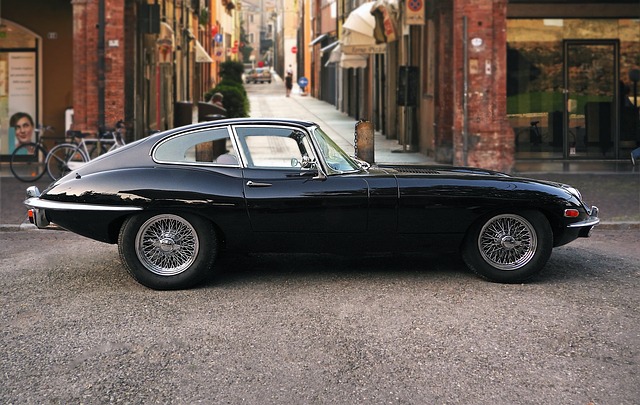What Does Comprehensive Car Insurance Cover in Singapore?

Car insurance is a legal requirement for all vehicle owners in Singapore, and comprehensive car insurance is one of the most popular options available. While third-party liability insurance is the minimum mandatory coverage, comprehensive car insurance offers much broader protection, making it an attractive choice for many drivers.
In this article, we’ll break down what comprehensive car insurance covers in Singapore, why it’s important, and how it can save you from unexpected financial burdens. Whether you’re a new driver or simply reviewing your current policy, understanding comprehensive coverage is key to ensuring you’re fully protected on the road.
What Is Comprehensive Car Insurance?
Comprehensive car insurance is the highest level of car insurance coverage available in Singapore. It provides protection not only for damages caused to others (third-party liabilities) but also for damages to your own vehicle, regardless of who is at fault. This makes it particularly valuable for safeguarding your investment in your car.
Unlike third-party-only or third-party fire and theft policies, which offer limited coverage, comprehensive insurance ensures that both you and your vehicle are protected against a wide range of risks.
What Does Comprehensive Car Insurance Cover?
The exact coverage details may vary slightly depending on the insurer and the specific policy, but generally, comprehensive car insurance in Singapore includes the following:
1. Third-Party Liability
This is the mandatory component of car insurance required by law in Singapore. It covers:
- Bodily Injury: Compensation for injuries or death caused to third parties in an accident.
- Property Damage: Repairs or compensation for damage caused to another person’s property (e.g., vehicles, buildings, or other objects).
2. Own Damage Coverage
This covers repairs to your own vehicle due to accidents, regardless of who is at fault. For example:
- Collision with another vehicle or object.
- Single-car accidents (e.g., hitting a curb or lamppost).
- Damage caused by natural disasters such as floods or storms.
3. Fire and Theft
Comprehensive insurance protects your vehicle against:
- Fire damage, whether accidental or due to arson.
- Theft of the entire vehicle or parts of it.
4. Personal Accident Coverage
Many comprehensive policies include personal accident coverage for the driver and passengers. This typically provides compensation for:
- Medical expenses resulting from injuries sustained in an accident.
- Death or permanent disability benefits.
5. Windscreen Damage
Some policies cover repairs or replacement of your windscreen if it cracks or shatters. In some cases, this may even be covered without affecting your no-claims discount (NCD).
6. Medical Expenses
Certain policies reimburse medical expenses incurred by the driver and passengers following an accident. This can include hospital bills, ambulance fees, and follow-up treatments.
7. Towing and Roadside Assistance
Many comprehensive plans include towing services and roadside assistance for emergencies such as breakdowns, flat tires, or running out of fuel.
8. Loss of Use
If your car is being repaired after an accident, some policies provide compensation for alternative transportation (e.g., taxi fares or rental car costs).
9. Excess-Free Claims
Some insurers offer excess-free claims for certain scenarios, such as windshield repairs or minor accidents, meaning you won’t have to pay the deductible (excess) for these claims.
10. Optional Add-Ons
You can enhance your comprehensive policy with optional riders, such as:
- Named Driver Extension: Covers additional drivers not listed on the policy.
- Flood Coverage: Provides extra protection during monsoon seasons or flash floods.
- Off-Road Coverage: Protects your vehicle when driving off-road or in rugged terrain.
What Isn’t Covered by Comprehensive Insurance?
While comprehensive insurance offers extensive protection, there are certain exclusions to be aware of:
- Wear and Tear: Routine maintenance issues like oil changes, tire rotations, or mechanical failures aren’t covered.
- Intentional Damage: Any damage you intentionally cause to your own vehicle won’t be reimbursed.
- Unapproved Modifications: Customizations or aftermarket upgrades to your vehicle may require additional endorsements to be covered.
- Driving Under Influence: Claims arising from accidents caused while under the influence of alcohol or drugs are typically excluded.
- Unauthorized Drivers: If someone not listed on your policy drives your car and gets into an accident, the claim may be denied.
Why Do You Need Comprehensive Car Insurance?
Now that we’ve outlined what comprehensive insurance covers, let’s explore why it’s worth considering:
1. Protection Against Unpredictable Events
Life is full of surprises, and some of them can be costly. From sudden floods to unexpected collisions, comprehensive insurance ensures you’re prepared for the unexpected.
2. Peace of Mind
Knowing that your vehicle is protected against a wide range of risks allows you to drive with confidence. Whether you live in a bustling city like Singapore or frequently travel outside the city, comprehensive coverage gives you peace of mind.
3. Financial Security
Repairing or replacing a vehicle can be incredibly expensive, especially if you own a newer or high-value car. Without comprehensive insurance, you’d have to bear these costs out of pocket.
4. High Theft Rates in Certain Areas
While Singapore has low crime rates compared to many other countries, car theft still occurs. Comprehensive insurance is essential if you park your car in areas with higher risks.
5. Additional Benefits
Features like personal accident coverage, roadside assistance, and loss of use compensation add significant value to your policy, making it more than just a safety net for your vehicle.
How Much Does Comprehensive Insurance Cost?
The cost of comprehensive insurance depends on several factors, including:
- Your Vehicle: Newer, more expensive cars tend to have higher premiums because repair or replacement costs are greater.
- Location: Urban areas with higher traffic congestion or accident rates may result in increased premiums.
- Driving History: Drivers with clean records often qualify for better rates.
- No-Claims Discount (NCD): Maintaining a claims-free record over multiple years can significantly reduce your premium.
- Deductible Amount: The deductible is the amount you agree to pay out of pocket before your insurance kicks in. A higher deductible usually means lower premiums.
On average, comprehensive insurance in Singapore costs between SGD 1,000 and SGD 3,000 annually , though this can vary significantly based on the factors above.
Is Comprehensive Insurance Worth It?
Deciding whether to purchase comprehensive insurance depends on your individual circumstances. Here are some questions to help you decide:
- What’s the Value of Your Vehicle?
- If your car is older and has depreciated significantly, the cost of comprehensive insurance might outweigh the potential payout. However, if your vehicle is relatively new or valuable, comprehensive coverage is highly recommended.
- Where Do You Drive?
- If you frequently drive in high-traffic areas or regions prone to flooding, comprehensive insurance becomes more critical.
- Can You Afford Out-of-Pocket Repairs?
- If you wouldn’t be able to cover the cost of repairs or a replacement vehicle in the event of theft or damage, comprehensive insurance is a smart investment.
- Do You Have a Loan or Lease?
- If you’re financing your vehicle, your lender may require you to carry comprehensive insurance to protect their investment.



